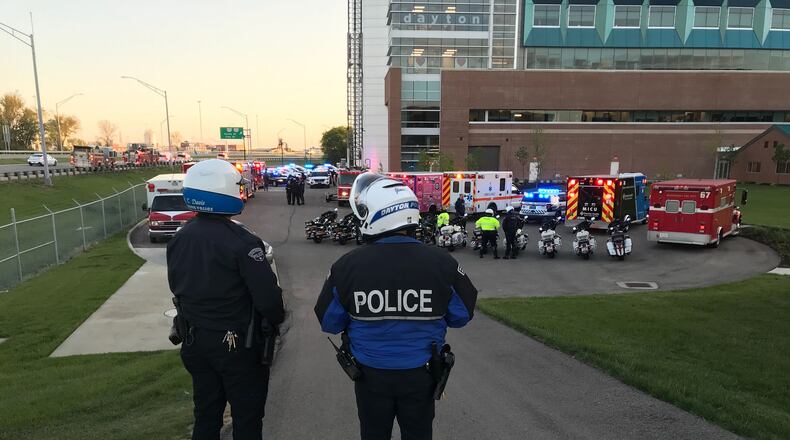The Ohio Senate recently passed House Bill 236, also called the Never Alone Act, which prevents congregate care settings such as nursing homes or hospitals from denying patients or residents access to their designated advocates during public health emergencies.
The Never Alone Act, sponsored by state Reps. Melanie Miller, R-City of Ashland and Beth Lear, R-Galena, passed the Ohio House in June before recently being passed by the Ohio Senate.
“I appreciate the advocacy and support of Ohio Advocates for Medical Freedom and all the others who came forward to share how this bill will ensure that patients have their family by their side,” Huffman said.
At the time of admission to a congregate care setting, the Never Alone Act allows the patient to designate an advocate who will act on their behalf. If patients are not allowed access to their advocates, the bill authorizes them or their advocates to petition a court for injunctive relief for a violation or threatened violation of the bill’s provisions.
“Many Ohio families were shut out of a hospital room due to COVID while their loved ones died alone in a hospital room,” Miller said in her sponsor testimony.
Miller used examples of a first-time mom delivering her baby alone without a loved one allowed in the delivery room, as well as an elderly parent with dementia in an assisted living facility who was only allowed to see his loved one through an outside window.
“We hope that this necessary and needed legislation will ensure that individuals and families will never again be left alone when facing a health crisis, even during a health emergency,” Miller said.
The Never Alone Act does not change or countermand any hospital or health care facility policy relating to the isolation of a patient during an invasive procedure, according to the bill’s analysis.
The bill does not prevent a congregate care setting from requiring the use of personal protective equipment (PPE) like face masks. Exemptions can be made, though, for advocates with a practitioner’s note saying that use of PPE conflicts with, or is not required because of, the advocate’s own physical or mental health condition.
Groups representing hospitals and long-term care facilities say there is a need for flexibility among those facilities about who can be present during different situations.
“During our interested party meetings, we discussed the difficulty in trying to identify each and every situation that could arise while a patient’s advocate is present which illustrates this need for flexibility,” Kate Huffman of the Ohio Hospital Association said during provided testimony to the Ohio Senate Health Committee about the need for hospitals to have discretion over when a patient’s advocate can be present.
While children were able to have access to a parent or guardian during the COVID-19 pandemic, the Ohio Children’s Hospital Association said that is not the only kind of public health emergency that could arise.
“Recent memory has our society almost exclusively focused on the impact of Covid-19, but the terror attacks of Sept. 11, 2001 and subsequent anthrax attacks also held PHE (public health emergency) labels,” said Sarah Kincaid, vice president of the Ohio Children’s Hospital Association, in her testimony before the Ohio Senate Health Committee.
“Hospitals have emergency preparedness plans in place, and children’s hospitals in particular create and plan for pediatric driven protocols in the event of an emergency. This includes natural disasters and bioterrorist attacks,” Kincaid said.
The bill now heads to the governor’s desk.
“I am grateful for the support of my colleagues in the General Assembly for their support of the Never Alone Act,” said Miller. “We are one signature away from ensuring that we are able to protect the rights of patients to have access to a loved one or advocate to act on behalf of their best interest while in a hospital or care facility.
About the Author




